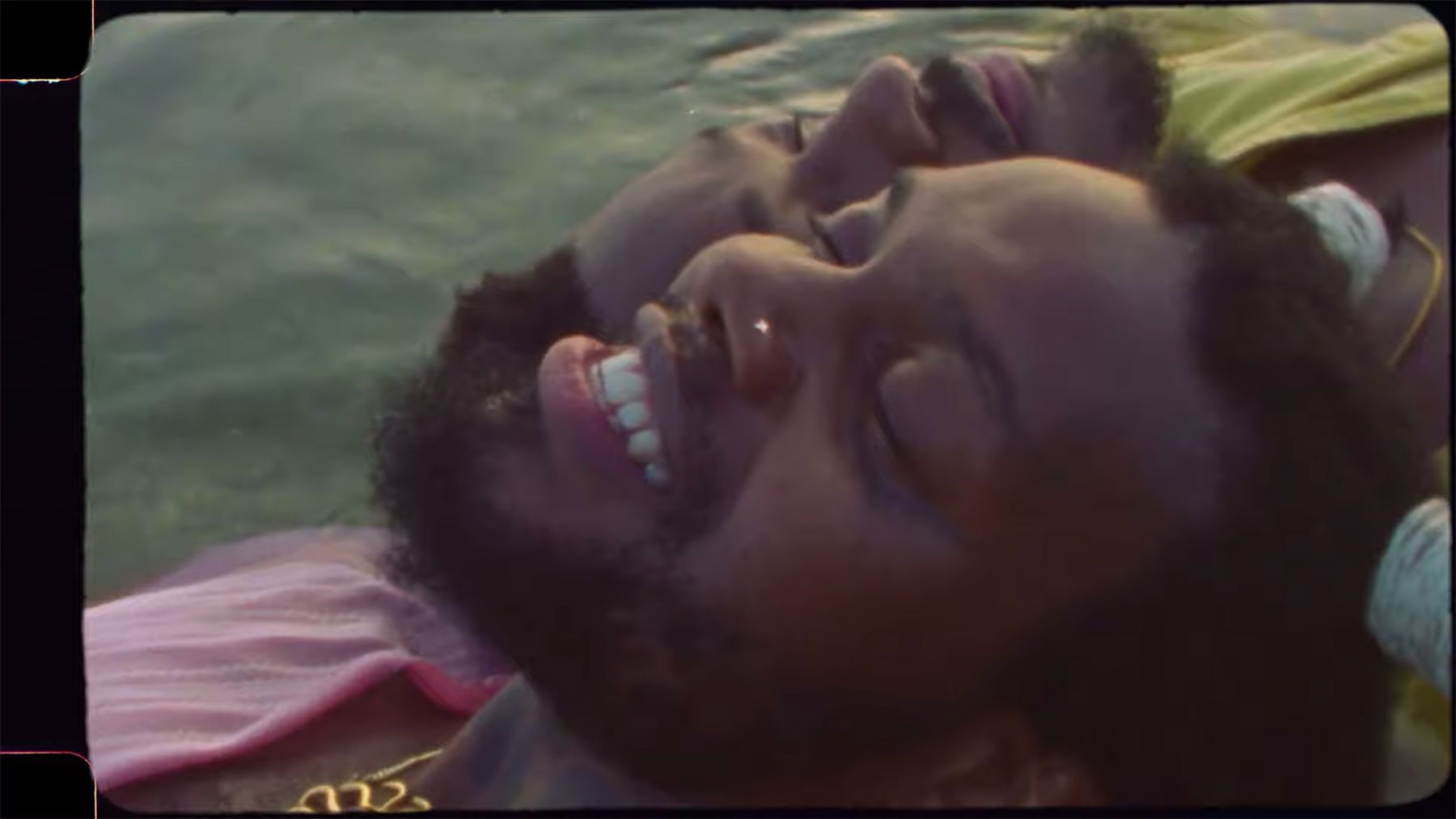
Drugs, Desperation, and Dementia: ‘Britney Vs Spears’ Reveals New Horrors in Conservatorship
Britney Spears has been fighting back against her 13-year conservatorship nearly since its inception, according to the new Netflix documentary Britney Vs Spears. Directed by Erin Lee Carr and featuring journalist Jenny Eliscu, the film examines the level of control held over Spears by her father, Jamie Spears, and exposes several previously unpublicized attempts by the singer to break free over the years.
Carr and Eliscu began working on the documentary two years ago, originally planning a piece on the singer’s artistry and her portrayal in the media. “But the story was also about power and control,” Carr notes in the film’s opening. “Full of conspiracy and rumors. And no one would talk. Until they did.”
The filmmakers tap a selection of people from the singer’s life, including, most notably, her ex-boyfriend Adnan Ghalib, a paparazzo she dated in 2008; her former manager Sam Lutfi; and Andrew Gallery, a director who befriended Britney while making a film about her for MTV. They also speak with Britney’s former assistant, Felicia Culotta; former backup dancer Tania Baron; John Nazarian, a private investigator hired by her legal team in 2007; and Mark Vincent Kaplan, attorney for her ex-husband Kevin Federline. Later in the film, they quote extensively from confidential court documents filed throughout the conservatorship attesting to Britney’s health and the state of her business affairs. The documentary starts the story in 2007, around the time of Spears’ divorce from Federline and shortly before the conservatorship was instituted in 2008.
Britney Vs. Spears arrives only days after Controlling Britney Spears — a documentary from The New York Times that premiered on FX and Hulu and brought forth new allegations against Jamie Spears, including that he had Britney’s bedroom wiretapped — and one day before a key hearing is scheduled in Spears’ conservatorship case.
Here are some of the most compelling revelations in Britney Vs. Spears, which concludes with audio of Spears’ emotional court testimony from earlier this year.
1. A geriatric doctor specializing in dementia was key in putting Britney under conservatorship.
Paperwork filed at the start of the conservatorship identified “orders related to dementia” as a component of Britney’s medical condition. After an anonymous source reached out to the filmmakers last fall, offering thousands of documents and communications related to the conservatorship, they obtained a more detailed medical report produced by a doctor in 2008, who eventually resigned from the case in 2013. The report was severe, including a statement that the singer “lacks the capacity to understand or manage her financial affairs without being subject to undue influence.”
Carr identified the doctor who wrote the report as Dr. James Edward Spar, a retired geriatric psychiatrist specializing in dementia. Spar agreed to speak with the filmmakers but refused to acknowledge in his interview that he had ever met Spears. “I’m not going to verify that I was ever brought in to evaluate Britney Spears,” he says.
Spar did confirm he has been involved in several conservatorships and that all of them have helped people, specifically in a way to “protect them from something.” He notes, “Mostly, it is a predatory individual after someone’s money.”
As Eliscu points out, at the same time that Britney was being diagnosed with dementia, she was back at work. “She was on the set of How I Met Your Mother,” Eliscu says. “The episode was out within two months of the conservatorship starting. How is someone who was that ill well enough to go to work?”
2. Jamie and Lynn Spears framed Lufti as a danger to Britney in order to speed along the conservatorship.
Sam Lutfi, Britney’s former manager, recently wrote on Twitter that he “failed” the singer, but his testimony in Britney Vs Spears goes a lot deeper. The pair originally met in a bar, where she asked for Lutfi’s phone number. He assumed he would never hear from her, until one night she called asking for help. Lutfi was a key confidant during Britney’s divorce from Kevin Federline, urging her to keep her family close while she was going through such a tough time. He says she replied, “My relationship is not like your relationship with your family.”
Around the time of the initial conservatorship filing, Lynne and Jamie Spears alleged that Lutfi was controlling and drugging the singer — a claim they used in a court filing to waive her right to five days’ notice to contest the conservatorship. That allegation is repeated in the documentary by Lorilee Cracker, Lynne’s biographer. “That is something that I don’t think has really been portrayed correctly is the level of crisis at the moment the conservatorship began,” Cracker tells Carr. “They felt they had to do it to protect Britney from Sam. He was crushing drugs and putting them in her food and bragging about it,” Cracker tells Carr. The director asks if she’s 100 percent sure. “Yeah,” Cracker says.
But Lutfi says it was just a ploy for control on their end. “You have a hundred blood tests and drug tests,” Lutfi tells the filmmakers. “The entire time I was with her, she passed every single one of them. Which is why the police never came to my door. No one ever came to my door. To be accused of allegations that serious, that you’re drugging the world’s biggest star, you call the police. You call the FBI. You don’t call TMZ. I was the perfect scapegoat.”
Lutfi, who later sued Lynne Spears for defamation, says the Spears family used him as a distraction. “A five-day notice means she would have been notified that this was going to happen and she would’ve had the right to contest it,” Lutfi says. “She would have obviously contested to it, immediately, and they knew that and everyone knew that. They had to do everything possible to prevent that from happening.”
3. Jenny Eliscu secretly tried to help Britney secure a new lawyer in 2009, passing her paperwork from the bathroom stall at a hotel.
Eliscu recounts how the conservatorship impacted Britney’s handling by her record label. For a Rolling Stone cover story in 2008, Eliscu was told by a publicist that she would need to submit questions in advance, even though she had previously interviewed the singer and had a friendly rapport with her. After this, Eliscu actually involved herself in Britney’s case, working with Lutfi and Ghalib to help her potentially hire a new lawyer.
Since Lutfi and Ghalib were no longer allowed near Britney, the pair enlisted Eliscu to deliver a document to her at the Montage Beverly Hills in Los Angeles. There, she needed to get the singer to sign the papers, which expressed her lack of confidence in her court-appointed attorney, Samuel Ingham, and requested a new lawyer, John Anderson. The document read, in part, “Ms. Spears is of the opinion that [Ingham] is not advocating adequately on her behalf, particularly in light of the severe restrictions placed upon her.”
At the Montage, Eliscu made eye contact with Spears, who was in the pool, and headed to the ladies room, where she prepared the paperwork in a stall. When Britney entered, Eliscu passed her the document and showed her where to sign; they spoke briefly before the singer walked out. “She just sort of looked at me and said, ‘Thank you,’ and I said, ‘I’ll see you again, go,’” Eliscu recalls, breaking down in tears on camera. “She definitely seemed scared. It was hard to tell because I was so scared, but she was so appreciative.”
That petition ultimately failed. “It had been ruled that she lacked capacity to choose her own lawyer, and that they had cast enough doubt on whether that was her signature,” Eliscu says. “I never heard anything of it again. No one ever talked about it again. Still, no one talks about the fact that there was another attempt to get a lawyer that somehow didn’t work out.”
4. Britney had to ask for permission to get a hamburger with her fiancé.
The confidential documents shared by the anonymous source include a medical report from a doctor who evaluated Spears’ ex-fiancé, Jason Trawick, who was opposed to her conservatorship despite later becoming her co-conservator.
“Jason states numerous inconveniences Britney has to go through under the conservatorship,” Carr reads from the report. “For example, they wanted to drive within a gated community on a golf cart, but have to ask permission each time. If they want to go out to a local hamburger joint, they have to call for permission and wait 20 minutes or more for an answer. If Britney needs a few hundred dollars to buy books for her kids, she has to ask and wait a few days for an answer.”
Carr notes, “This was right after Britney finished the huge, giant tour. That was Femme Fatale.” It was on that tour, in 2011, that the singer became more and more concerned by Jamie’s control.
“Britney began to complain about Jamie’s drinking,” Carr reads from the document. “She is especially adamant that Jamie be punished. This seems to be a lightning rod for all her complaints about the conservatorship itself. In a simple way she feels that if she is drug tested, so should he be. And if she were to suffer a great penalty like losing her kids if she tested positive, he should suffer an equally great penalty for his drinking…. Britney wants to come off the conservatorship.”
This goes against the conservatorship’s claims that Britney had never asked to be freed from the arrangement. Carr reads from another document: “At times she seems to understand the benefits of the conservatorship. At other times, she indicates she would go along with the conservatorship of the estate. But mostly she wants to end the conservatorship of the person.”
5. Britney’s medication was increased on days she agreed to work.
The conservatorship signed a $15 million deal for Spears to serve as a judge on the reality competition The X Factor in 2012, but a medical evaluation of the singer felt it put “undue pressure” on her. Despite that, her manager, Larry Rudolph, kept her on board, saying that withdrawing from the show would be just as bad. The medical team then approved the job, but put some provisions in place, including that her then-fiancé Trawick’s presence on the set was “mandatory.”
Carr quotes a document revealing that Spears’ medication was increased if she worked. “There’s different dosages on ‘non-work days’ and work days,’” Eliscu adds, looking at the document. She reads, “On one hand, Jamie and the team valued the benefits of stimulants for Britney’s performance. This had been the case for her tours and for her participation on The X Factor. By the same token, Jamie wanted Britney not to take stimulants. This contradiction has not been resolved.”
6. Before the conservatorship, Britney was taking a lot of Adderall.
Though she has been on prescribed medication throughout her conservatorship, Britney took stimulants on her own prior to the court-ordered arrangement. Ghalib — who befriended the singer after he’d been tasked with following her and photographing her during her divorce — recounts how he would often stay up with her for days at a time, fearful something would happen to her while she was under his care. He describes Britney as having been in a dark place, with “not one person she could trust — not Mom, not Dad, not friends, not her sister, not one.”
“She was taking Adderall,” he tells the filmmakers. “I’m sure X amount of millions of people are taking Adderall. But these are the things that become volatile and deadly weapons when you’re going through a child custody case.”
Ghalib also says the use of the word “crazy” to describe Britney was unjustified and unfair. “A lot of people argue that she was ‘crazy’, right?” he says. “You know, I fucking hate that word. Would you say she was upset? Would you say she was angry? Would you say she was hurt? I’d choose those before I’d choose crazy.”




